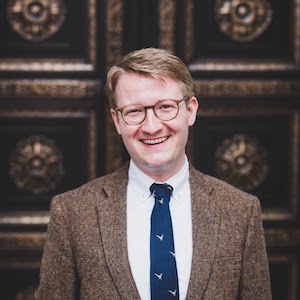Tocqueville’s Democracy in America
For Hertog alumni. Re-examine the foundational text on American democracy and liberty.
Summer 2025
Online
To mark the 250th anniversary of Jane Austen’s birth, Humanities at Hertog invites alumni to a summer reading series devoted to her five major novels. These monthly, community-led seminars offer a chance to read and reflect together on Austen’s enduring wit, subtlety, and social insight.
We begin in June with Pride and Prejudice, Austen’s most beloved novel—a sharp, spirited comedy of manners that blends romantic tension with a clear-eyed critique of class and convention. We then turn to Mansfield Park, a quieter, more austere novel that explores moral complexity through the steady gaze of Fanny Price. July brings Persuasion, an elegant meditation on memory, regret, and the enduring possibility of renewal. In August, we read Sense and Sensibility, a double portrait of two sisters—Elinor and Marianne—whose temperaments illuminate the age-old tension between reason and emotion. We conclude in September with Emma, Austen’s sunniest and slyest novel, a study in misjudgment, self-knowledge, and unexpected happiness.
Each session will be guided by Hertog staff and alumni moderators, with discussion unfolding in small groups. A shared Slack channel will support ongoing conversation and occasional diversions—polls, film debates, and watch parties—as we move through the season.
Jane Austen's Novels: An Alumni Reading Series with #HumanitiesAtHertog
This course is offered by Humanities at Hertog, and is open only to alumni of Hertog fellowships. It takes place monthly on Sundays, via Zoom, from 6 PM to 8 PM ET.

Mary Elizabeth Halper is Dean of the Humanities at Hertog program and a tutor at St. John’s College, Annapolis. Previously, she was Associate Director of the Hertog Foundation. She graduated with B.A.s in Philosophy and Classics from the University of Dallas and has since been devoted to liberal education in various forms.

Mary Elizabeth Halper is Dean of the Humanities at Hertog program and a tutor at St. John’s College, Annapolis. Previously, she was Associate Director of the Hertog Foundation. She graduated with B.A.s in Philosophy and Classics from the University of Dallas and has since been devoted to liberal education in various forms. She earned her Ph.D. in Philosophy from the Catholic University of America, where she defended a dissertation on the political philosophy of Plato’s Protagoras and Gorgias.

John Harpham
John Harpham is a Lecturer on Social Studies at Harvard University. He is an historian of political thought and an intellectual historian. His research examines ideas about slavery, freedom, and race, as well as the relation of such ideas to practices of enslavement and resistance across the Atlantic world. He is at work on a three-volume series about the ideas that were associated with the origins, development, and eventual abolition of slavery in the Anglo-American Atlantic world. The first volume, The Intellectual Origins of American Slavery, is currently available from Harvard University Press.

Christopher Utter
Christopher Utter is Associate Director of the Lincoln Scholars program and term professorial lecturer in the Department of Government in the School of Public Affairs at American University. He regularly teaches courses in the Lincoln Scholars program as well as upper level political theory courses. His research focuses mainly on classical political philosophy with a particular interest in the problem of theory and practice in Plato and Aristotle.

Mary Elizabeth Halper
Mary Elizabeth Halper is Dean of the Humanities at Hertog program and a tutor at St. John’s College, Annapolis. Previously, she was Associate Director of the Hertog Foundation. She graduated with B.A.s in Philosophy and Classics from the University of Dallas and has since been devoted to liberal education in various forms.

Christopher Scalia
Christopher J. Scalia is a senior fellow in the Social, Cultural, and Constitutional Studies department at the American Enterprise Institute, where he focuses on literature, culture, and higher education. Prior to his role at AEI, Dr. Scalia was an English professor with a specialty in 18th-century and early 19th-century British literature.

Cheryl Miller
Cheryl Miller is executive director at the Hertog Foundation. Previously, she served as deputy director of research in the Office of Presidential Speechwriting and as research assistant to David Brooks at The New York Times. Her reviews and commentary have appeared in such publications as The Wall Street Journal, Commentary, and The Weekly Standard. She graduated from the University of Dallas with Bachelor of Arts degrees in English and Politics.